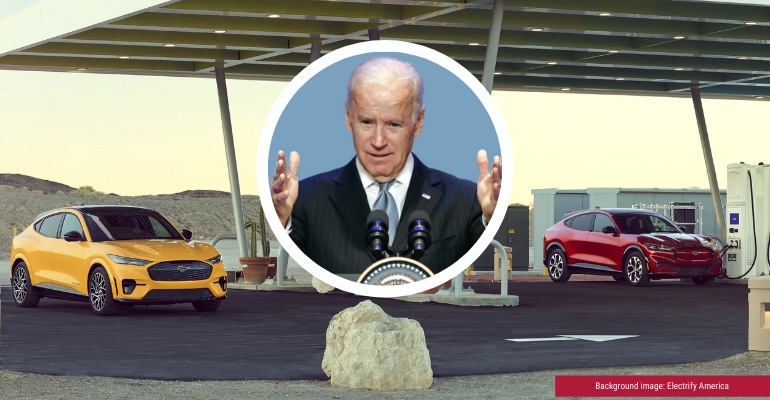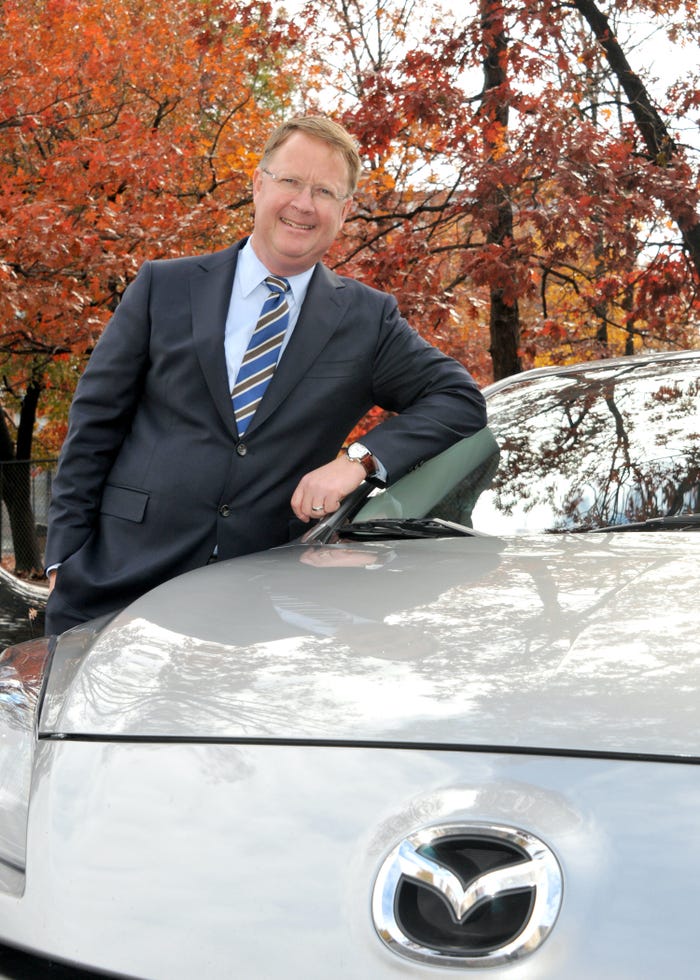The President has declared plans to electrify the federal government's vehicle fleet with exclusive EV purchases. Is this practical?
February 16, 2021

A quick survey of Washington, D.C. organizations has found broad support from industry and non-governmental organizations for President Biden's executive order calling for the federal government to exclusively buy EVs to reduce its carbon emissions.
“The federal government…owns an enormous fleet of vehicles, which we’re going to replace with clean, electric vehicles made right here in America by American workers, creating millions of jobs — a million autoworker jobs in clean energy — and vehicles that are net-zero emissions,” President Biden said.
Here's the response we heard:

Zero Emission Transportation Association Executive Director Joe Britton
“A week into their tenure, the Biden-Harris Administration is demonstrating their strong commitment to rapid vehicle electrification, recognizing the opportunity EVs present to create jobs, advance American competitiveness, and decarbonize the U.S. economy. By transitioning the federal vehicle fleet to EVs, President Biden is leading by example, sending a strong market and policy signal while catalyzing the transportation electrification sector and advancing the critical secondary market for EVs. We look forward to continuing our work with President Biden and Congress to accomplish our vision of 100 percent EV sales by 2030."

Alliance for Automotive Innovation President and CEO John Bozzella
“Our goal is to work collaboratively with the administration to achieve greater environmental improvements than current requirements, sooner, while providing benefits for consumers, creating opportunities for job creation, and strengthening our nation’s economy. What unites our industry in pursuing a revised national program is a simple premise – a resolution that has the support of all stakeholders could set the industry on an accelerated path for reducing GHG emissions, build a robust market for electric vehicles, and resolve on-going litigation. Addressing such near-term issues will provide regulatory clarity, advance our shared environmental goals, and lay the foundation for future efforts.”

Volkswagen Group of America spokesperson Mike Tolbert
"Volkswagen was one of the first major automakers to commit to becoming carbon neutral by 2050, and our goal hasn’t changed. Presidential elections come and go. But when they bring change that aligns with your goals, it makes it easier to chase after the ambitious plans we’ve set for ourselves and to show what Volkswagen means today: thinking big, acting boldly, and leading progress."

Mazda North America Operations Vice President of Government and Public Affairs Dan Ryan
"We can confirm we will bring our first electric vehicle, the MX-30, to the US market. The vehicle will be available as both a fully electric model and a series plug-in-hybrid, featuring a rotary engine. A national program to address GHG emissions must also support vehicle electrification with a range of compliance incentives, including expanded multipliers for electrification, and reforms that will be complemented by other important federal, state, and local investments and policies that support the transition to a zero-emission future."
About the Author(s)
You May Also Like


